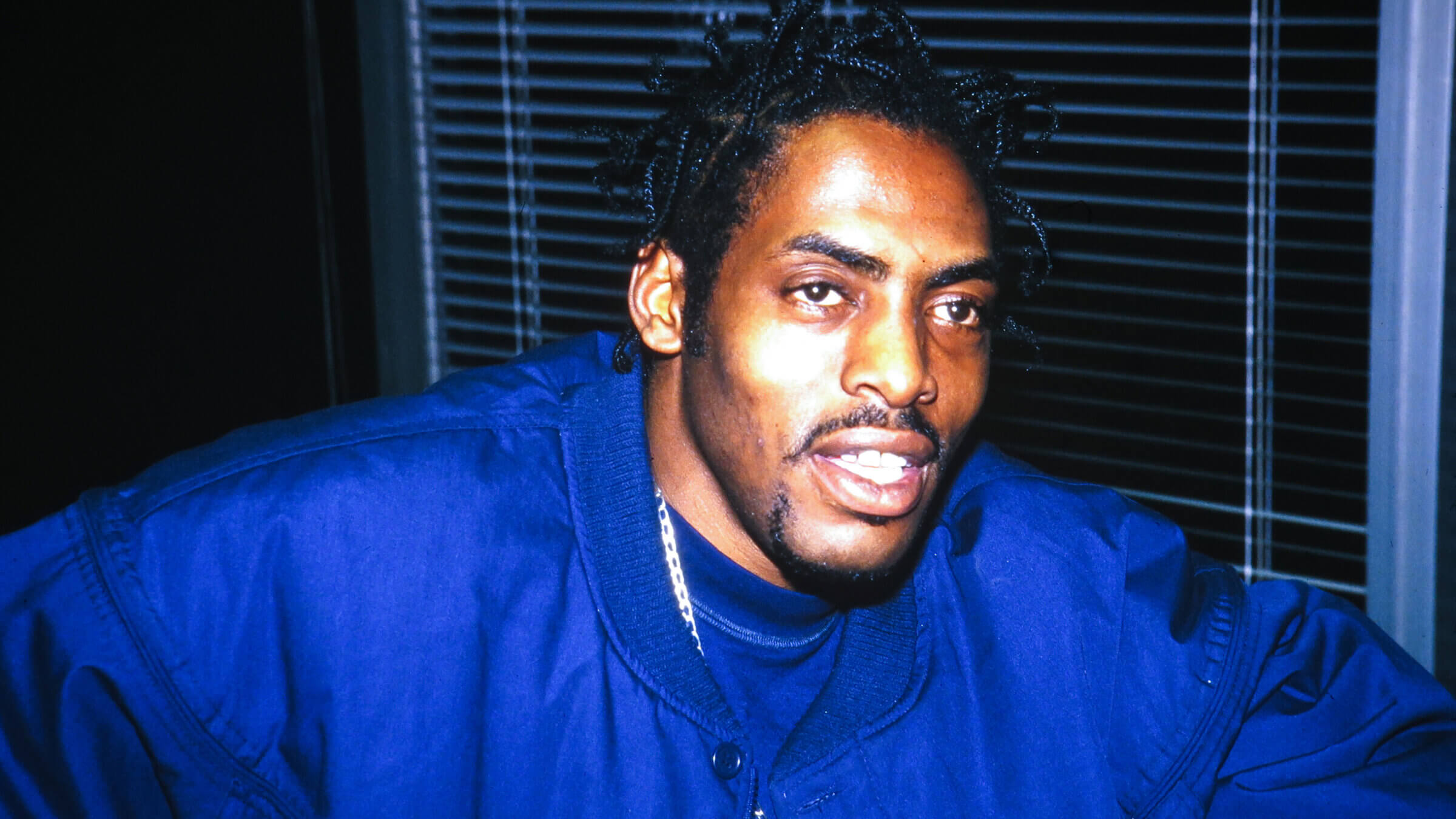RIP Coolio, who breathed new life into a familiar psalm
The ‘Gangsta’s Paradise’ rapper repurposed Psalm 23 to reflect his own reality

Coolio in 1995, the year of “Gangsta’s Paradise.” Photo by Steve Eichner/Getty Images
Coolio, the Grammy-winning rapper and producer who rose to prominence in the 1990s, died Wednesday at the age of 59. Among his many achievements was providing a new tune to a familiar staple of Jewish life.
In his single, “Gangsta’s Paradise,” Coolio opens with the lyric, “As I walk through the valley of the shadow of death/I take a look at my life and realize there’s nothing left.”
Coolio is modifying a verse from Psalm 23, a psalm of David expressing trust in God as shepherd. The rapper, born Artis Leon Ivey Jr., may have heard the Psalm in church, but Jews often hear it in Hebrew during the seudah shlishit (the third Shabbat meal), or recite it in times of trouble or as part of funerals.
The line, also translated as “Though I walk through a valley of deepest darkness/I fear no harm, for You are with me,” was in Coolio’s hands (with an assist from Stevie Wonder’s “Pastime Paradise”) altered to reflect a bleaker condition of life in his hometown of Compton, California, where “death ain’t nothin’ but a heartbeat away.” In this space, God can’t be relied upon. Something else needs to break the cycle.
The song ends with a plea, as Coolio’s collaborator L.V. sings, “Tell me, why are we so blind to see/That the ones we hurt, are you and me?”
It’s a testament to Coolio’s words and music that the single is remembered and still celebrated, even as the film that first featured it, “Dangerous Minds,” about a white teacher who introduces her East Palo Alto Black and Latinx charges to poetry via Bob Dylan’s “Mr. Tambourine Man,” was rightly maligned even in 1995 for trafficking in racist stereotypes. (Sadly, the music video is forever marred by the puzzling presence of Michelle Pfeiffer.)
“Gangsta’s Paradise” gained further traction when parodist Weird Al Yankovic spun it into the song “Amish Paradise,” which begins, “As I walk through the valley where I harvest my grain/I take a look at my wife and realize she’s very plain.”
Naturally, Jews followed Yankovic’s lead, producing many riffs referencing Jewish practice.
Coolio wasn’t thrilled with Yankovic’s interpretation, declining his request for permission. Due to copyright law, he could not stop him from making the track, and it was released on the 1996 album “Bad Hair Day.” Coolio responded by writing a public statement slamming Weird Al, but, years after the fact, realized his mistake, offering a lesson in teshuva during this period of reflection.
In a 2014 interview, Coolio explained that he had apologized to Yankovic and came to realize that the jokester’s desire to parody was, in fact, a compliment.
“I was wrong,” Coolio said. “It’s one of those things where I made the wrong call and nobody stopped me.”
One hopes that Coolio’s family may take comfort in the Psalm he used to such great effect. We all might consider Coolio’s own words, and his wish for a better world.
,
The Forward is free to read, but it isn’t free to produce

I hope you appreciated this article. Before you go, I’d like to ask you to please support the Forward.
Now more than ever, American Jews need independent news they can trust, with reporting driven by truth, not ideology. We serve you, not any ideological agenda.
At a time when other newsrooms are closing or cutting back, the Forward has removed its paywall and invested additional resources to report on the ground from Israel and around the U.S. on the impact of the war, rising antisemitism and polarized discourse.
This is a great time to support independent Jewish journalism you rely on. Make a gift today!
— Rachel Fishman Feddersen, Publisher and CEO
Support our mission to tell the Jewish story fully and fairly.
Most Popular
- 1

Culture Cardinals are Catholic, not Jewish — so why do they all wear yarmulkes?
- 2

Fast Forward Ye debuts ‘Heil Hitler’ music video that includes a sample of a Hitler speech
- 3

News School Israel trip turns ‘terrifying’ for LA students attacked by Israeli teens
- 4

Fast Forward Student suspended for ‘F— the Jews’ video defends himself on antisemitic podcast
In Case You Missed It
-

Yiddish קאָנצערט לכּבֿוד דעם ייִדישן שרײַבער און רעדאַקטאָר באָריס סאַנדלערConcert honoring Yiddish writer and editor Boris Sandler
דער בעל־שׂימחה האָט יאָרן לאַנג געדינט ווי דער רעדאַקטאָר פֿונעם ייִדישן פֿאָרווערטס.
-

Fast Forward Trump’s new pick for surgeon general blames the Nazis for pesticides on our food
-

Fast Forward Jewish feud over Trump escalates with open letter in The New York Times
-

Fast Forward First American pope, Leo XIV, studied under a leader in Jewish-Catholic relations
-
Shop the Forward Store
100% of profits support our journalism
Republish This Story
Please read before republishing
We’re happy to make this story available to republish for free, unless it originated with JTA, Haaretz or another publication (as indicated on the article) and as long as you follow our guidelines.
You must comply with the following:
- Credit the Forward
- Retain our pixel
- Preserve our canonical link in Google search
- Add a noindex tag in Google search
See our full guidelines for more information, and this guide for detail about canonical URLs.
To republish, copy the HTML by clicking on the yellow button to the right; it includes our tracking pixel, all paragraph styles and hyperlinks, the author byline and credit to the Forward. It does not include images; to avoid copyright violations, you must add them manually, following our guidelines. Please email us at [email protected], subject line “republish,” with any questions or to let us know what stories you’re picking up.
















